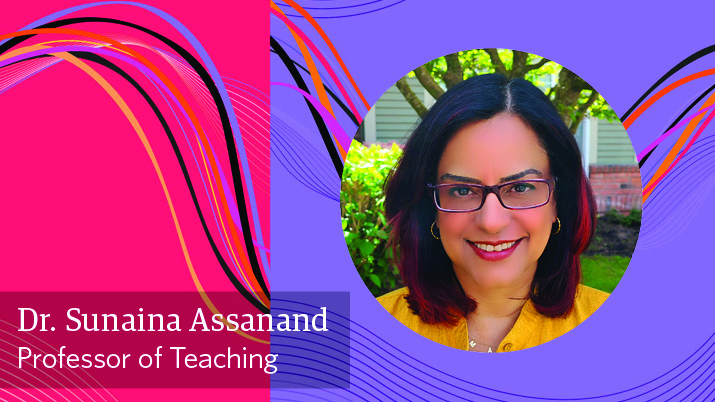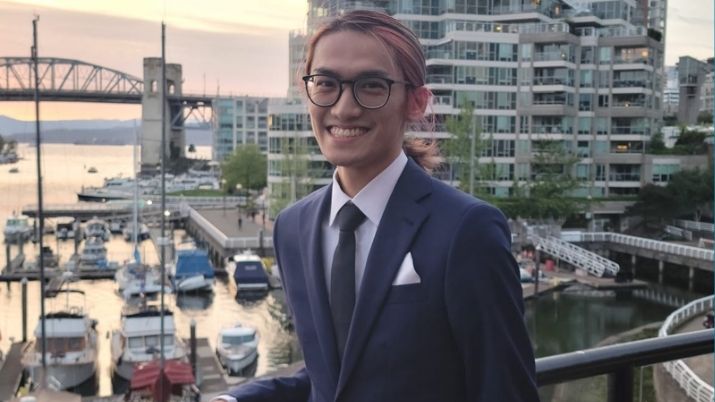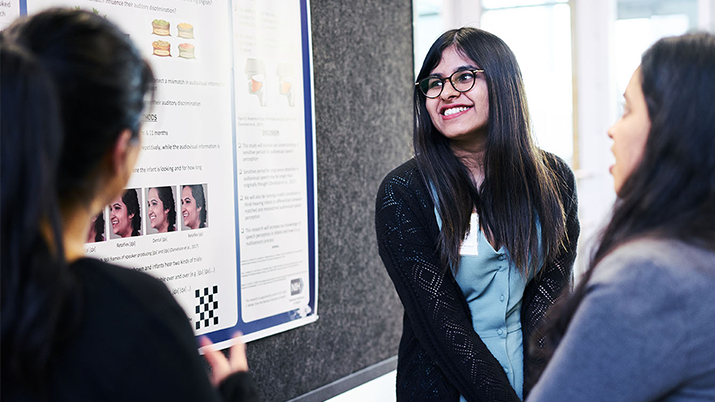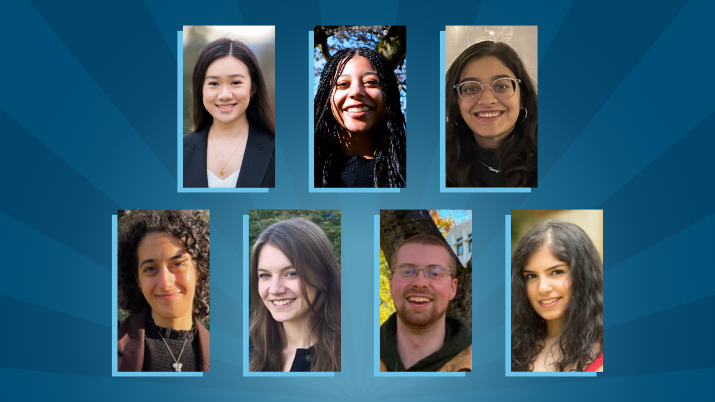

May is Asian Heritage Month.
UBC’s Faculty of Arts profiled professors from the Departments of Asian Studies and Psychology about who inspired them to pursue being scholars, what they’re currently working on, and how decolonization education happens in their classrooms.
Dr. Sunaina Assanand (she/her), professor of teaching in UBC’s department of psychology, took part.
Dr. Assanand’s primary areas of scholarly interest are community psychology, cultural psychology, gender psychology, and the application of psychology to global development. Additionally, she has served a five-year term as Associate Dean, Student Success for the Faculty of Arts. Dr. Assanand has been recognized as one of several “Women Who Inspire and Create Positive Change” through UBC’s Celebrating Women campaign. She has served on prominent committees such as the President’s Task Force on Anti-Racism and Inclusive Excellence and UBC’s Presidential Search Committee. Dr. Assanand has received the Knox Master Teaching Award and Killam Teaching Prize for excellence in undergraduate education and the Just Desserts Award for outstanding contributions and service to students.
In a Q&A, Dr. Assanand shares a tribute to her inspiring mother, advice she would give to her younger self, and how she has decolonized her curriculum.
Who is an Asian person you admire or who has mentored you?
My mother has been my most significant mentor—both professionally and personally. Her early years of schooling were at a gurukul in the birthplace of Mahatma Gandhi. There, she was exposed to Gandhi’s teachings, including teachings related to self-discipline, humility, humanity, and non-violence. As a South Asian refugee from Uganda, she promoted and enacted these teachings in Canada. In 1991, she founded the Vancouver and Lower Mainland Multicultural Family Support Services Society, an organization that offers culturally-responsive services to immigrant, refugee, and visible-minority women, children, and families who experience domestic violence. To date, the organization has counselled and supported over 43,000 women and children. In recognition of her commitment to anti-violence and work in the anti-violence sector, she was appointed to the Order of British Columbia in 2020 and received an honorary Doctor of Laws from UBC in 2021. Before her death, she shared with me words that she described as her greatest wisdom: “Be kind to everyone always.”
What words of empowerment or advice would you give to your younger self?
When I was younger, I believed that I could avoid the adverse impacts of racism and sexism through dedication, hard work, and ethical engagement. Regrettably, over the years, I learned that I could not avoid these adverse impacts. Given my belief in meritocracy, it was difficult to accept that I was, in fact, multiply stigmatized by my race and gender. Accordingly, I would advise my younger self to recognize and understand the realities of racism and sexism, particularly within the systems in which we work. Moreover, I would encourage my younger self to speak boldly about her observations and experiences, to work with allies to challenge racist and sexist systems, and to persevere to ease the path for others who will follow.
How do you facilitate anti-racist and decolonizing education in the classroom?
Psychology is a largely Eurocentric discipline—developed in the West, with an overreliance on Western samples In an attempt to challenge Psychology’s Eurocentric focus—and decolonize our curriculum—I have developed an upper-level undergraduate course that examines Psychology’s contributions to international development. Through critical reflection, case-based learning, and problem-based learning, the course draws students’ attention to ethnocentrism and racism in Psychology, Indigenous Psychologies, and research methods that advance community engagement. In past years, students have applied course content abroad, through international service learning placements in which they have supported local initiatives in Kenya, South Africa, Swaziland, and Uganda—initiatives that have been determined and developed by local NGOs and the communities that they serve. In the years ahead, I hope to increase accessibility to the course, making it available to more Psychology students earlier in their degree.


